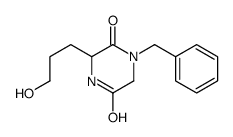5965-53-7
| 中文名 | 2-氧代戊烷-1,5-二甲酸二乙酯 |
|---|---|
| 英文名 | diethyl 2-oxopentanedioate |
| 中文别名 |
2-氧代戊二酸-1,5-二乙酯
二乙基 2-氧代戊二酸酯 |
| 英文别名 |
UNII-D9H7KZF90H
diethyl 2-oxo-glutarate diethyl 2-ketoglutarate α-Ketoglutaric acid diethyl ester Diethyl 2-oxopentanedioate Pentanedioic acid, 2-oxo-, diethyl ester diethyl oxalpropionate ethyl 4-ethoxycarbonyl-2-oxobutanoate Glutaric acid, 2-oxo-, diethyl ester |
| 密度 | 1.1±0.1 g/cm3 |
|---|---|
| 沸点 | 283.0±23.0 °C at 760 mmHg |
| 分子式 | C9H14O5 |
| 分子量 | 202.204 |
| 闪点 | 121.0±22.7 °C |
| 精确质量 | 202.084122 |
| PSA | 69.67000 |
| LogP | 0.85 |
| 蒸汽压 | 0.0±0.6 mmHg at 25°C |
| 折射率 | 1.435 |
| 储存条件 | 室温,干燥密封 |
Synonym:Diethyl 2-methyl-2'-oxosuccinat Section 2 - COMPOSITION, INFORMATION ON INGREDIENTS
Risk Phrases: None Listed. Section 3 - HAZARDS IDENTIFICATION EMERGENCY OVERVIEW
The toxicological properties of this material have not been fully investigated. Potential Health Effects Eye: May cause eye irritation. Skin: May cause skin irritation. Ingestion: May cause irritation of the digestive tract. The toxicological properties of this substance have not been fully investigated. Inhalation: May cause respiratory tract irritation. The toxicological properties of this substance have not been fully investigated. Chronic: No information found. Section 4 - FIRST AID MEASURES Eyes: Flush eyes with plenty of water for at least 15 minutes, occasionally lifting the upper and lower eyelids. Get medical aid. Skin: Get medical aid. Flush skin with plenty of water for at least 15 minutes while removing contaminated clothing and shoes. Wash clothing before reuse. Ingestion: Never give anything by mouth to an unconscious person. Get medical aid. Do NOT induce vomiting. If conscious and alert, rinse mouth and drink 2-4 cupfuls of milk or water. Inhalation: Remove from exposure and move to fresh air immediately. If not breathing, give artificial respiration. If breathing is difficult, give oxygen. Get medical aid. Notes to Physician: Section 5 - FIRE FIGHTING MEASURES General Information: As in any fire, wear a self-contained breathing apparatus in pressure-demand, MSHA/NIOSH (approved or equivalent), and full protective gear. During a fire, irritating and highly toxic gases may be generated by thermal decomposition or combustion. Vapors may be heavier than air. They can spread along the ground and collect in low or confined areas. Extinguishing Media: Use agent most appropriate to extinguish fire. Use water spray, dry chemical, carbon dioxide, or appropriate foam. Section 6 - ACCIDENTAL RELEASE MEASURES General Information: Use proper personal protective equipment as indicated in Section 8. Spills/Leaks: Absorb spill with inert material (e.g. vermiculite, sand or earth), then place in suitable container. Clean up spills immediately, observing precautions in the Protective Equipment section. Provide ventilation. Section 7 - HANDLING and STORAGE Handling: Wash thoroughly after handling. Remove contaminated clothing and wash before reuse. Use with adequate ventilation. Avoid contact with eyes, skin, and clothing. Keep container tightly closed. Avoid ingestion and inhalation. Storage: Keep container closed when not in use. Store in a tightly closed container. Store in a cool, dry, well-ventilated area away from incompatible substances. Section 8 - EXPOSURE CONTROLS, PERSONAL PROTECTION Engineering Controls: Facilities storing or utilizing this material should be equipped with an eyewash facility and a safety shower. Use adequate ventilation to keep airborne concentrations low. Exposure Limits CAS# 5965-53-7: Personal Protective Equipment Eyes: Wear appropriate protective eyeglasses or chemical safety goggles as described by OSHA's eye and face protection regulations in 29 CFR 1910.133 or European Standard EN166. Skin: Wear appropriate protective gloves to prevent skin exposure. Clothing: Wear appropriate protective clothing to prevent skin exposure. Respirators: A respiratory protection program that meets OSHA's 29 CFR 1910.134 and ANSI Z88.2 requirements or European Standard EN 149 must be followed whenever workplace conditions warrant respirator use. Section 9 - PHYSICAL AND CHEMICAL PROPERTIES Physical State: Liquid Color: clear very slight yellow Odor: None reported. pH: Not available. Vapor Pressure: Not available. Viscosity: Not available. Boiling Point: 138 deg C @ 23.00 mmHg Freezing/Melting Point: Not available. Autoignition Temperature: Not applicable. Flash Point: > 112 deg C (> 233.60 deg F) Explosion Limits, lower: Not available. Explosion Limits, upper: Not available. Decomposition Temperature: Solubility in water: Specific Gravity/Density: 1.0730 g/cm3 Molecular Formula: C9H14O5 Molecular Weight: 202.21 Section 10 - STABILITY AND REACTIVITY Chemical Stability: Stable under normal temperatures and pressures. Conditions to Avoid: Incompatible materials, excess heat, strong oxidants. Incompatibilities with Other Materials: Acids, bases, oxidizing agents, reducing agents. Hazardous Decomposition Products: Carbon monoxide, irritating and toxic fumes and gases, carbon dioxide. Hazardous Polymerization: Has not been reported. Section 11 - TOXICOLOGICAL INFORMATION RTECS#: CAS# 5965-53-7 unlisted. LD50/LC50: Not available. Carcinogenicity: Diethyl oxalpropionate - Not listed by ACGIH, IARC, or NTP. Section 12 - ECOLOGICAL INFORMATION Section 13 - DISPOSAL CONSIDERATIONS Dispose of in a manner consistent with federal, state, and local regulations. Section 14 - TRANSPORT INFORMATION IATA Not regulated as a hazardous material. IMO Not regulated as a hazardous material. RID/ADR Not regulated as a hazardous material. Section 15 - REGULATORY INFORMATION European/International Regulations European Labeling in Accordance with EC Directives Hazard Symbols: Not available. Risk Phrases: Safety Phrases: S 24/25 Avoid contact with skin and eyes. S 28A After contact with skin, wash immediately with plenty of water. S 37 Wear suitable gloves. S 45 In case of accident or if you feel unwell, seek medical advice immediately (show the label where possible). WGK (Water Danger/Protection) CAS# 5965-53-7: No information available. Canada None of the chemicals in this product are listed on the DSL/NDSL list. CAS# 5965-53-7 is not listed on Canada's Ingredient Disclosure List. US FEDERAL TSCA CAS# 5965-53-7 is not listed on the TSCA inventory. It is for research and development use only. SECTION 16 - ADDITIONAL INFORMATION N/A |
| 安全声明 (欧洲) | S24/25 |
|---|---|
| 海关编码 | 2918300090 |
| 上游产品 7 | |
|---|---|
| 下游产品 10 | |
| 海关编码 | 2918300090 |
|---|---|
| 中文概述 | 2918300090 其他含醛基或酮基不含其他含氧基羧酸(包括酸酐、酰卤化物、过氧化物和过氧酸及该税号的衍生物). 增值税率:17.0% 退税率:9.0% 监管条件:无 最惠国关税:6.5% 普通关税:30.0% |
| 申报要素 | 品名, 成分含量, 用途 |
| Summary | 2918300090 other carboxylic acids with aldehyde or ketone function but without other oxygen function, their anhydrides, halides, peroxides, peroxyacids and their derivatives。Supervision conditions:None。VAT:17.0%。Tax rebate rate:9.0%。MFN tariff:6.5%。General tariff:30.0% |


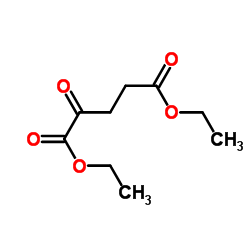
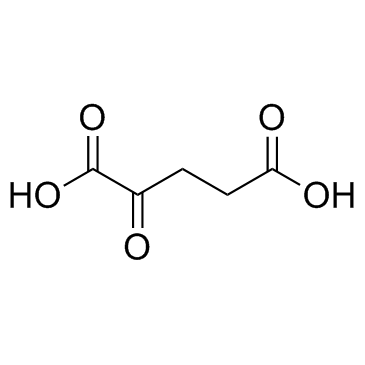

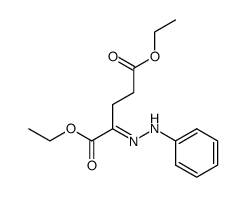

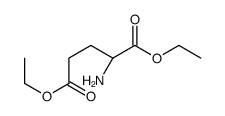
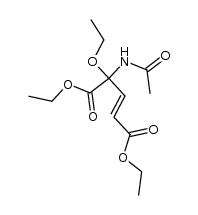
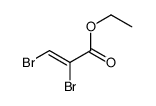

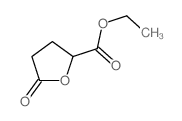
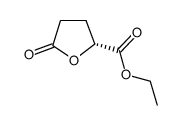
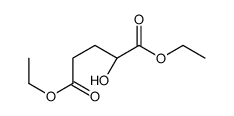

![diethyl 2-[(2-chloroacetyl)amino]pent-2-enedioate结构式](https://image.chemsrc.com/caspic/269/88521-38-4.png)
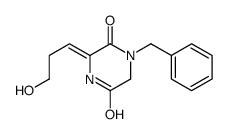
![7-benzyl-1-oxa-7,10-diazaspiro[4.5]decane-6,8,9-trione结构式](https://image.chemsrc.com/caspic/083/88521-52-2.png)
